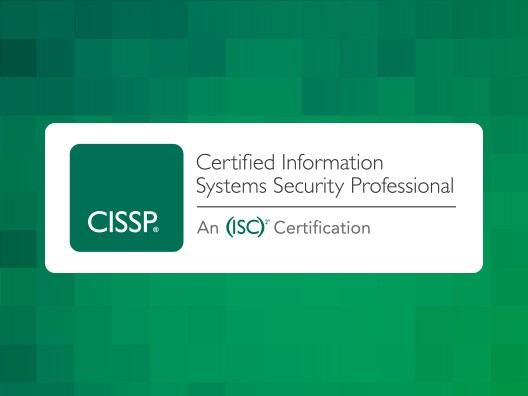For many cybersecurity professionals, earning the certified information security systems professional (CISSP) credential isn’t just about adding another line to their resume — it’s about mastering the art and science of information security. The CISSP certification stands as a symbol of expertise, discipline, and leadership in one of the most critical industries of our time. But what’s the real value of CISSP training beyond exam preparation? Let’s explore how it truly transforms careers and mindsets.
More Than Just an Exam — It’s a Mindset Shift
When you embark on CISSP certification training, you quickly realize it’s not just about memorizing concepts or definitions. It’s about adopting a new way of thinking about security — strategic, structured, and proactive. The CISSP Common Body of Knowledge (CBK) covers eight crucial domains that expand your vision of how organizations protect their data and infrastructure.
Through comprehensive modules like Security and Risk Management, Security Architecture and Engineering, and Security Operations, professionals gain the ability to connect the dots across an enterprise’s security ecosystem. This mindset shift is what differentiates a CISSP-certified professional from a typical IT security analyst.
Deep Dive into the Eight CISSP Domains
CISSP training covers the eight domains defined by (ISC)² — each representing a pillar of enterprise security. Understanding these doesn’t just help you pass the test; it prepares you to solve real-world security challenges.
Here’s a quick look at what you’ll master:
- Security and Risk Management – Build governance, compliance, and ethical frameworks.
- Asset Security – Learn how to classify, handle, and protect information assets.
- Security Architecture and Engineering – Design and manage secure infrastructures.
- Communication and Network Security – Protect data during transmission and ensure secure communication channels.
- Identity and Access Management (IAM) – Implement effective access control mechanisms.
- Security Assessment and Testing – Develop strategies for ongoing testing and improvement.
- Security Operations – Manage incidents, disasters, and operational resilience.
- Software Development Security – Ensure security is integrated throughout the development lifecycle.
By understanding each of these domains in depth, CISSP candidates evolve into well-rounded professionals capable of managing security from both a technical and strategic perspective.
Real-World Application of CISSP Knowledge
Unlike many certifications that focus heavily on theory, CISSP training goes a step further — it teaches application. Professionals who undergo quality training learn to translate principles into practice.
For instance, when facing a ransomware attack, a CISSP-certified security leader can swiftly assess vulnerabilities, prioritize recovery steps, and coordinate an effective incident response plan. The certification prepares you not only to recognize threats but also to lead teams and make informed security decisions under pressure.
This leadership capability is one reason why CISSP holders are often sought after for roles like:
- Security Architect
- Information Security Manager
- IT Director
- Chief Information Security Officer (CISO)
- Security Consultant
Career Growth and Global Recognition
CISSP is globally recognized as the gold standard in cybersecurity certification. It’s endorsed by organizations such as the U.S. Department of Defense (DoD 8570.1) and accredited under ISO/IEC 17024 standards, ensuring its credibility worldwide.
Professionals who hold this certification often see a significant salary boost — with average annual pay in the U.S. exceeding $120,000, according to industry reports. More importantly, it opens doors to senior-level cybersecurity roles in both private and government sectors.
Beyond financial rewards, the CISSP title brings professional prestige and positions you as a trusted authority in your organization’s security posture.
Why Quality CISSP Training Matters
Passing the CISSP exam requires a blend of technical expertise and strategic understanding, which is where structured training becomes invaluable. A high-quality program, like Sprintzeal’s, ensures candidates receive:
- Comprehensive domain coverage aligned with (ISC)² CBK
- 1000+ practice questions to sharpen knowledge retention
- 32 PDUs / CEUs to maintain professional credentials
- Live instructor-led sessions that provide hands-on learning
- 1-year e-learning access and post-training support
These resources not only prepare candidates for the exam but also build real-world confidence to apply security principles effectively in their workplace.
CISSP Training: A Stepping Stone to Leadership
One of the most understated benefits of CISSP training is how it prepares you for leadership. The curriculum emphasizes not just technical proficiency but also strategic governance, ethical decision-making, and risk-based thinking.
This balance between technical depth and managerial insight helps professionals evolve into security leaders, capable of shaping policies, guiding teams, and protecting organizations from emerging digital threats.
In a world where cybersecurity breaches can cost millions, having CISSP-certified leaders can make the difference between vulnerability and resilience.
Final Thoughts
CISSP training is more than a means to certification — it’s a journey that transforms professionals into guardians of information integrity. It teaches how to view security holistically, communicate effectively with stakeholders, and build robust defenses against evolving threats.
Whether you’re an IT professional aiming to move up or a security analyst striving for global recognition, CISSP training is your gateway to mastery and leadership in cybersecurity.
To learn more about career opportunities, success stories, and training options, visit Sprintzeal’s reviews and testimonials page and see how others have advanced their cybersecurity careers through expert-led programs.





Comments